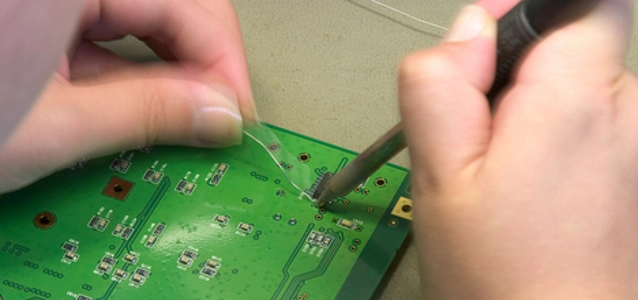
© dimitry romanchuck dreamstime.com
Components |
Holst Centre, imec and wearable remote monitoring
Imec, Holst Centre and the East-Limburg Hospital (Ziekenhuis Oost-Limburg, ZOL) signed a strategic partnership to accelerate the development of wearable sensor technologies for remote healthcare and personal health applications.
The agreement unites Holst Centre and imec’s technology expertise with ZOL’s clinical excellence to focus the development of remote monitoring where it is most relevant to the healthcare domain, and enable rapid validation of new technologies and applications.
Real-time, wearable remote healthcare monitoring could revolutionize the treatment of chronic illnesses such as heart disease and diabetes. Diagnosed patients wouldn’t need to visit the hospital as often or for as long, while healthy people in high risk groups could benefit from an unobtrusive system that provides early warning of a condition developing.
The partnership between Holst Centre, imec and ZOL aims to speed up the development of such systems. Clinicians from ZOL and the Mobile Health Unit (a joint initiative between ZOL and Hasselt University) will test Holst Centre and imec’s wearable remote monitoring technologies on real patients in real clinical settings. In this way, the partners aim to answer questions such as “How comfortable are the devices to wear?” and “Can they detect conditions like heart arrhythmias?”.
In addition, the partners will share clinical and technical insights to identify ways in which wearable remote monitoring technology can better address unmet healthcare needs. This will lead to improvements to existing solutions and the development of new applications. The long-term nature of the partnership will also allow a more exploratory aspect to the joint research, to address clinical needs that may emerge in the future.
“Combining clinical insight and technical know-how is essential for the timely development of remote monitoring systems. But partnerships between hospitals and technology developers are rare as it is hard for partners to find each other. In Holst Centre and imec, we have partners at the forefront of technology development who can apply the medical insights we offer right from the start to create technologies that really meet the needs of patients and healthcare professionals,” said Lars Grieten, project coordinator at ZOL.
“ZOL and the Mobile Health Unit lead the way in deploying tele-monitoring technologies in Belgium. They are a natural fit for our own vision of wearable health stretching from the hospital to the home. By bringing together two groups who are dedicated to exploring the same questions but from different and complementary perspectives, we will be better able to proactively address the pain points facing healthcare professionals today and in the future,” said Julien Penders, program manager at Holst Centre/imec.
The partnership is already seeing results. At November’s Wireless Health 2013, the partners presented a small pilot study on the use of wearable sensors to detect sleep apnea.
